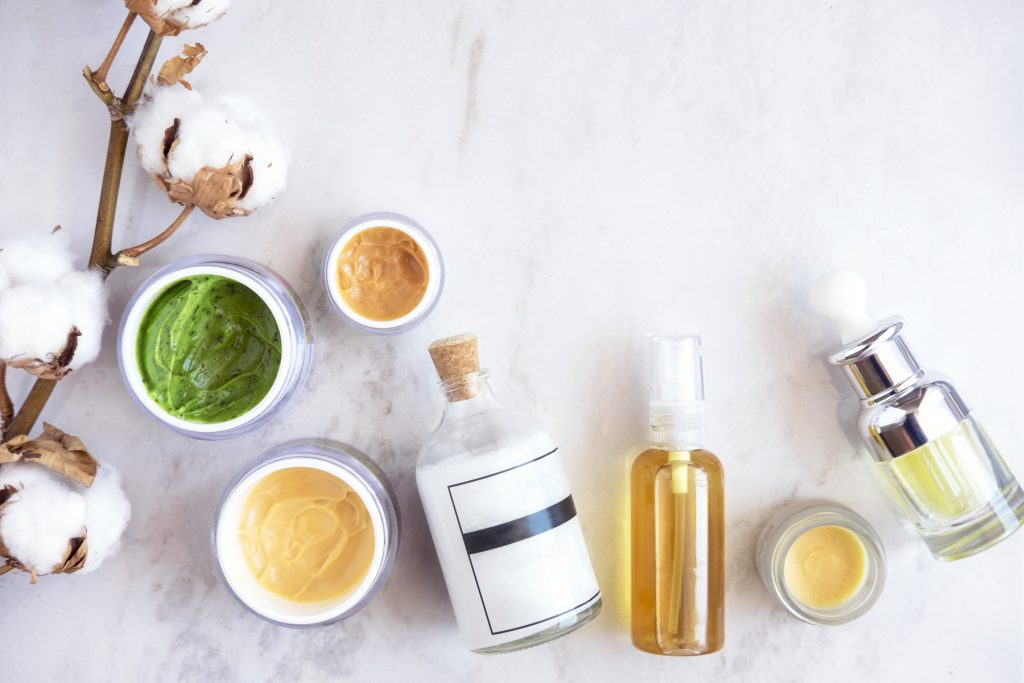
In the middle of March, Dr. Lindsey Zubritsky, a dermatologist in Pittsburgh, Pennsylvania and a member of the American Academy of Dermatology’s social media team, began to see a concerning flurry of COVID-related photos splashed across the news and lining her social media pages.
Each image was similar. A healthcare worker’s face was framed in a close-up snapshot. Somber eyes stared into the camera. The removal of face and eye protection revealed deep mask imprints, red bruises, skin tears, smudged makeup, and sweat. According to the U.S. Census Bureau, women hold 76 percent of all healthcare jobs, and indeed many of the photographs featured women. Zubritsky called these images “the faces of the coronavirus pandemic.”
https://www.instagram.com/p/B-UjED4jqbE/
Zubritsky’s dermatology training allowed her to immediately recognize a skincare problem. Face masks cause friction, moisture buildup, and skin degradation. For the hundreds of thousands of essential workers across the country wearing masks daily (including her husband, who is a cardiologist) this damage could lead to open skin vulnerable to infections.
“All day long, people were messaging me asking what to do,” she said. “It seems like an insignificant issue, but it’s not. None of this is vanity. It’s painful, decreases morale, and leads to infection.”
Since then, Zubritsky has posted helpful tips and advice on social media, saying a post on Instagram about skincare for essential workers was her most popular one by tenfold. Her inbox has been flooded with additional questions and messages of gratitude.
Below are a few of her takeaways and recommendations:
What’s the Problem?
In most instances, there are no alternatives to the use of masks and eye protection, Zubritsky says. And in the hospital, healthcare workers may wear protective equipment for 12+ hours a day and re-wear old masks. This leads to a few key concerns:
- Constant pressure and friction of the face can lead to microtears and skin breakdown, usually seen on the nose, cheeks, and forehead.
- Skin irritation from daily mask use can lead to old conditions, like acne, eczema, or rosacea surfacing.
- Non-stop mask use leads to humid and moist environments in which infections can thrive.
- All of the above lead to open, vulnerable skin, which is a poor barrier against fungal, bacterial, and viral infection.
Advice for Before a Shift
Zubritsky recommends the following pre-shift protocols to create a clean and strong skin barrier.
- If you usually wear makeup, skip it for now. Sweating with makeup on can lead to increased acne.
- Wash your face with a gentle cleanser.
- Moisturize with a fragrance-free and dye-free moisturizer.
- Apply thin adhesive strips called dressing strips to areas that come into contact with masks or goggles. This can act as a barrier to decrease friction.
Advice for After a Shift
After a shift, Zubritsky recommends the following to allow for skin healing.
- Wash your face with a gentle cleanser.
- If you have open skin, apply a wound dressing gel or healing ointment only to the open wounds, red sores, erosions, and tears. This can be repeated a few times a day.
- Moisturize again. For dry skin, look for moisturizing products with glycerin and Vitamin B5 or niacinamide to help redness.
- Avoid aggressive skin treatments like exfoliants, retinoids, or scrubs.
- If you’re developing acne, try a simple benzoyl peroxide face wash.
- For worsening acne or skin conditions, contact a physician for further medication.
What About Hands?
With increased handwashing comes dryness and irritation.
“I don’t recommend stopping hand washing because your hands are dry or chapped,” Zubritsky says. Here are tips she recommends at home to keep hands healthy.
- Wash your hands with lukewarm water. When your hands are still slightly wet, it is the best time to moisturize.
- Look for a moisturizer that comes in a tube or jar. The greasiest moisturizers, called ointments, are the best for dry skin. Lotions, which are water-based, are the worst.
- If greasy hands are too inconvenient during the day, try it at night! At bedtime, slather on the thickest moisturizers. Occlude hands with white cotton gloves so the moisture sits on the skin all night long.
- Superglue — yes, superglue — works perfectly when applied carefully to close skin fissures.
Zubritsky hopes that by sharing information, she can help alleviate some of the stress that is seen among our healthcare’s frontline.
“This is why we do what we do,” she says.




